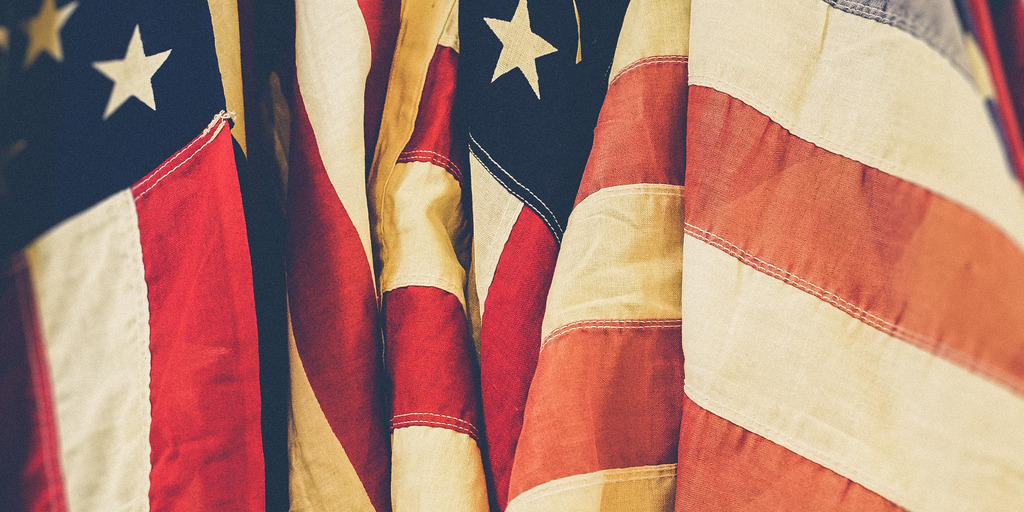by KAROLA KLATT
In the face of less than rosy election forecasts, incumbent President Donald Trump misses no opportunity to voice ambiguity on whether he would accept electoral defeat. His repeated attempts to brand the elections as "manipulated" because of the expected high percentage of postal votes indicate that he and the Republican Party are already gearing up for legal action against a Biden victory. In this context, it could be significant that Trump restructured the judicial system to his favor during his stint in power. This year's country report of the Bertelsmann Stiftung's Sustainable Governance Indicators (SGI) states: "Primarily in an effort to protect himself from being held accountable, Trump has politicized at the very least the top layers of the Justice Department, and to lesser degrees the State Department, the intelligence community and other agencies. He has appointed numerous (sometimes unqualified) loyalists as federal judges."
His recent push to fill the Supreme Court vacancy following the death of the left-liberal judge Ruth Bader Ginsburg with the arch-conservative judge Amy Coney Barrett before the election must be viewed in this light. If Barrett were confirmed by the Senate before November 3, as the Republicans have planned, the ratio of Republican and Democrat-appointed judges in the most important court in the United States would stand at 6 to 3. Barrett would be the third Supreme Court appointment to be appointed by Trump.
Postal ballot regulations are loudly contested
After the presidential elections on November 3, the validity of postal votes could be the subject of a decision by the highest court in many states. Experts expect that about 80 of the approximately 250 million eligible voters will cast their votes by mail due to the corona pandemic. The rules for postal voting vary greatly from state to state. Easing of the electoral laws that are supposed to make it easier to vote by mail during the Corona pandemic was enacted or court-ordered by Democrats in more than two dozen states in the run-up to the elections, while Republicans in twenty states took legal action against existing postal voting regulations or the lifting of restrictions.
With a budget of $20 million, the Republicans and Trump's campaign team are spearheading a legal battle against the postal vote. There is a general assumption that Biden in particular would benefit from a high voter participation. In some states, voting by mail is possible until election day, and the count will only take place in the days after. It is expected that the announcement of a winner in these states will be delayed by one or two days. In particularly contested states with rigid election laws, it could take weeks before a winner is announced.
Increasing obstacles to the right to vote
The SGI study also compares industrialized countries on the extent to which all citizens have the opportunity to participate in national elections. Over the last eight years, the United States' ranking in this indicator slumped from 8 to 5 out of 10 possible points. The only country with a worse rating for ensuring access to the right to vote is Hungary. The SGI country experts outline the following reasons: "As of 2019, the Republican party adopted as a standard party strategy the suppression of low-income and minority votes by any legal means. Republican officials in Wisconsin and Georgia have launched initiatives to purge the voter rolls of hundreds of thousands of voters, mostly in minority and low-income areas.”
On January 6, 2021, the states must submit their election results to Congress. It remains to be seen whether states with Democratic governors and Republican parliaments like Michigan, Wisconsin or Pennsylvania will be able to do so. Back in 2000, the Supreme Court finally decided on the vote count in Florida in the presidential elections. A similar dispute over the counting results threatens to flare up this year in several states with a close race.
Party polarization sparks a democratic impasse
The key problem of American democracy is the increasing party polarization which is paralyzing the country. Without a balance of interests in the chambers of popular representation, the president increasingly governs from above by decree. The electoral system in the United States is not designed for such extreme party polarization. It requires a minimum of good will and cooperation, traits which are currently hardly discernible.
In a tense atmosphere in which Republicans and Democrats are caught in an unrelenting battle, it is not only a Biden victory that threatens to plunge the country into chaos. If Trump were to reclaim decisive swing states in the last minute, keeping him in power, the decline of democracy would be extended by another four years and the country would remain staunchly divided. The SGI country experts warn in their US country report: "If not defeated in the 2020 elections, Trump and the Republicans will most likely proceed to entrench politicized law enforcement, an acceptance of foreign election interference, and the suppression of minority voters so as to capture a lasting advantage in national elections. The same political party that for generations presented itself as the defender of traditional constitutional values might then preside over a transformation of the political system into an authoritarian sham democracy."
Since no one can reliably predict how the pandemic will affect voter turnout, the polls remain uncertain despite a significant difference in the forecasts for the two presidential candidates. But even if these predictions become reality and there is a change of power in the White House and possibly in Congress, the Democrats will then face the epochal task of unifying the country and consolidating U.S. democracy so that it is better protected against authoritarian populism in the future.
Karola Klatt is a science journalist and editor of SGI News and the Bertelsmann Stiftung's BTI blog.
Translated by Jess Smee.
A version of this article was first published by The Brussels Times




